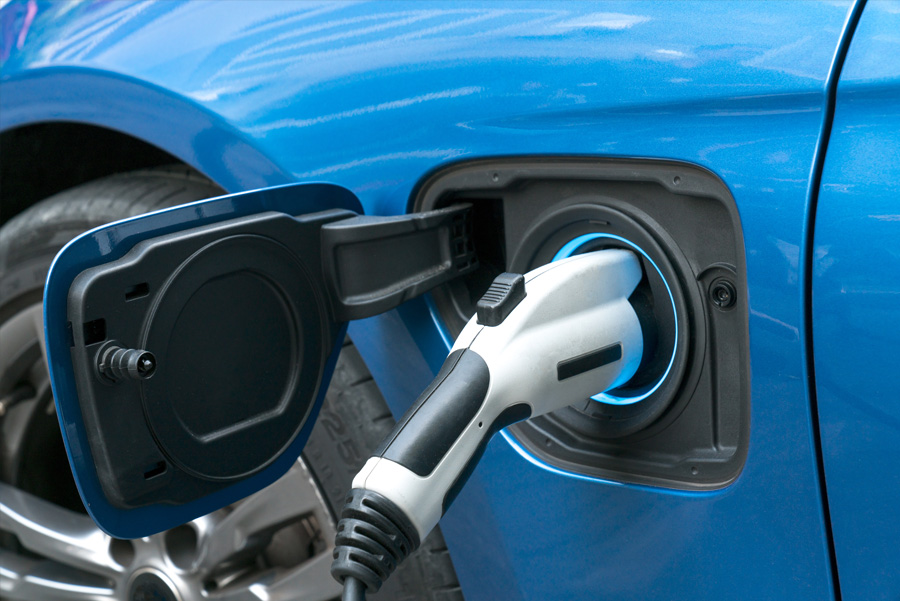S h a r e
The cost of charging an electric vehicle


Posted by
Kevin Blackmore
August 2023
Charging an electric vehicle can cost significantly less than fuelling a traditional petrol or diesel vehicle. However, the actual cost differs depending on your location and charging technology.
The average cost to fully charge an electric vehicle with a 50kWh battery and a range of 200 miles is as follows:
- Home charger: approximately £5.00 on a home EV tariff.
- Work: often free or subsidised, but depends on your employer or business location.
- Public location: around £17.50, located in a supermarket or car park for example.
- Public location (rapid charger): approximately £22 for half an hour which provides around 140 miles of range.
It should be noted that many manufacturers recommend against charging a vehicle to 100%. In addition, when charging a vehicle it’s very unlikely your charge will be zero, so in the majority of cases you’ll be topping up the battery, and when charging in public, it’s rare that a full charge will be required.
Home charging
Charging your electric vehicle at home is the easiest and most convenient way to charge your vehicle. It’s also the most cost-effective. With your car parked in your driveway, you’re able to charge your car while you sleep, meaning your battery is always fully charged when you’re ready to leave in the morning.
- Average domestic charging rate is approximately 35p per kWh
- For a 50 kWh vehicle, a full charge will cost approximately £17.50
- Many home owners can switch to an EV tariff, which cuts costs to around 10p per kWh overnight, reducing a charge to approximately £5
- A full charge will typically provide a range of around 200 miles – though this will differ depending on the size and specification of your vehicle.
The OZEV (Office for Zero Emission Vehicles) previously offered a grant for installing a homecharger. However the grant is now only available to people living in rented properties or flats with dedicated off-street parking. In addition, applications have been suspended for the Energy Saving Trust grant that was previously available to Scottish residents.
Example charge costs
Charging at work
The cost to charge an electric vehicle at your workplace will depend on your employer. In some cases charging will be free, in other cases, your employer may apply a set tariff or only charge after a specific charging duration.
In many cases, the charging cost levied depends on the number of charge points. If charge points are limited, some employees may adopt a tariff based on charging duration to discourage extended use of a specific charge point and thereby increase the number of staff that are able to charge their vehicles.
Public charge points
There will be times when you need to charge your car on-the-go, or you might simply want to take advantage of a charge point while you are parked to top up the battery.
Most networks offer free apps to allow you to locate charge points and start the charging process, and if you’re likely to use a public point or network regularly, drivers can get an RFID card, which can’t suffer from a flat battery or lack of phone signal.
The cost to charge is advertised before use, and is typically a set pence per kWh fee. Occasionally there are connection fees for charge points or networks, but this payment set-up has largely been abandoned for a traditional price per unit used.
Networks offer their own app and connection methods, though there are many network aggregators, which allow cross-network access to a wide range of charge points. This might be offered through the manufacturer the car is supplied by, or drivers can use the likes of Newmotion, Paua, Electroverse, AllStar, Bonnet, Zap-Pay, or Monta, and have their charging billed through one account/app.
Some of these offer a subscription for a set monthly fee, which then reduces the unit cost of the electricity used. This is worth carefully considering, but could represent significant savings if regularly charging on public networks.
You can search for charge points on a range of websites including:
Rapid chargers
Typically located at motorway service stations, Rapid and Ultra-Rapid (or High-Power) chargers allow you to charge your vehicle to 80% capacity within 20-40 minutes, depending on EV and charger power. These are the most expensive charge points to use, but also the fastest way to top-up your car, paying extra for the convenience of charging in minutes, rather than hours.
The typical cost of a rapid charger is around 63p to 79p depending on the provider. Ultra-rapid chargers cost around 69p through to 85p per kW – again depending on the provider.
Whilst rapid chargers are not the most economical way to charge your electric vehicle regularly, they are particularly convenient on long journeys, and can make a 500+ mile trip possible for the majority of electric cars with only one or two short stops.

